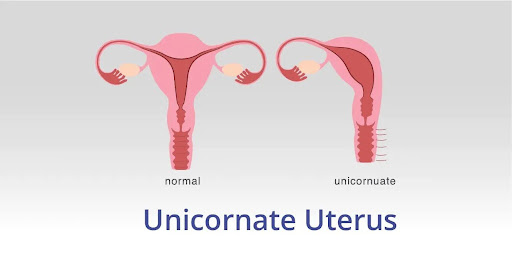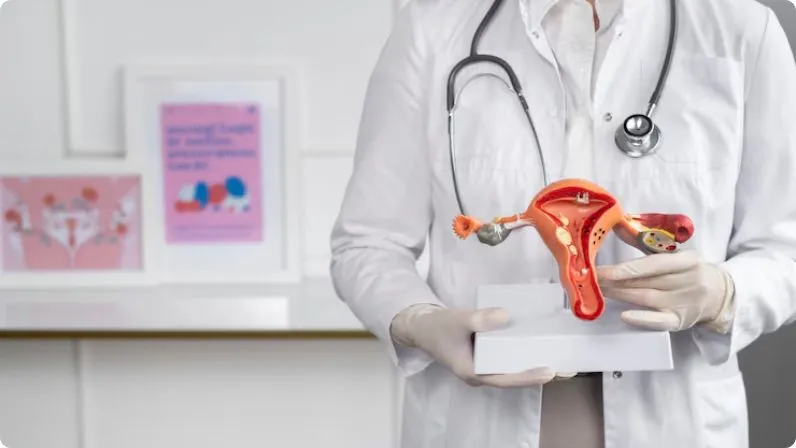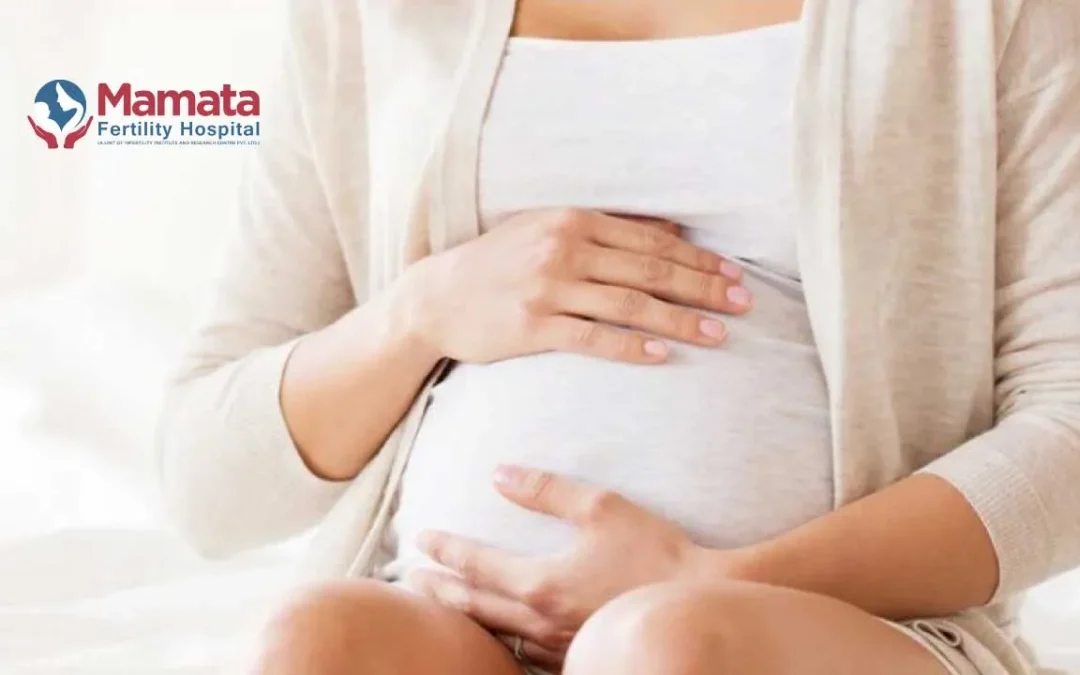Unicornuate Uterus
At Mamata Fertility Hospital in Secunderabad, our mission is to provide compassionate care and clear information about conditions that affect women’s reproductive health.
One such rare condition is the unicornuate uterus, a congenital anomaly that can impact fertility and pregnancy outcomes. While it may seem concerning, many women with this condition go on to lead healthy lives and achieve successful pregnancies with the proper care.
This article offers an easy-to-understand guide to unicornuate uterus, its causes, symptoms, and treatments.
For Appointments, Please Call:
More On Unicornuate Uterus
What is a Unicornuate Uterus?
The uterus is a key part of a woman’s reproductive system, typically shaped like an upside-down pear. A unicornuate uterus is a rare condition where the uterus forms incompletely during fetal development. Instead of a full, two-sided structure, only one side develops, resulting in a smaller, single-sided uterus.
This condition arises because one of the two Müllerian ducts, which usually fuse to form the uterus, does not develop properly or at all. Women with a unicornuate uterus often have just one functional fallopian tube, as the other tube corresponds to the undeveloped side.

Types of Unicornuate Uterus
The condition can vary in severity and structure:
- Unicornuate Uterus Without a Rudimentary Horn: Only one side of the uterus forms, with no remnants of the other side.
- Unicornuate Uterus With a Rudimentary Horn: A smaller, underdeveloped piece of uterus (horn) is present but often does not function properly. This horn may or may not be connected to the main uterus.

Causes and Risk Factors
A unicornuate uterus is a congenital condition, meaning it is present from birth. It develops while the baby is still in the womb and is part of a category of disorders known as Müllerian anomalies.
Causes
-
- Incomplete Fusion of Müllerian Ducts: During fetal development, the two ducts that form the uterus fail to combine fully, resulting in a unicornuate uterus.
- Genetic Factors: Though not commonly hereditary, women with family histories of uterine abnormalities may have a greater likelihood of these conditions.
Risk Factors
While the exact cause is unknown, other uterine anomalies (like bicornuate or septate uterus) may occur in women with similar congenital risks. A unicornuate uterus itself is not caused by lifestyle or prenatal factors.
Symptoms and Diagnosis
The unicornuate uterus often goes undetected, as many women do not experience obvious symptoms. However, for some, reproductive difficulties or pelvic pain may signal its presence.
Common Symptoms
-
- Irregular Menstrual Cycles: Some women may notice abnormalities in their menstrual patterns.
- Pelvic Pain: Discomfort during periods or persistent pelvic pain is common when a rudimentary horn is present.
- Difficulty Conceiving or Infertility: Challenges in getting pregnant often lead to the discovery of this condition.
- Pregnancy Loss: Repeated miscarriage or preterm labor can be linked to abnormalities in the uterine structure.
Diagnostic Techniques
Advanced medical tools are used to identify a unicornuate uterus. At Mamata Fertility Hospital, we utilize:
-
- Ultrasound (2D or 3D): Provides imaging of the uterine structure and size.
- Hysterosalpingography (HSG): An X-ray test uses dye to highlight details of the uterus and fallopian tubes.
- MRI: Magnetic resonance imaging offers a detailed view of internal structures to confirm diagnosis.
- Laparoscopy: A minimally invasive surgery where a small camera is used to view the reproductive organs directly.
Timely and accurate diagnosis is essential in managing this condition effectively and planning appropriate care.
Impact on Fertility and Pregnancy
A unicornuate uterus does not rule out the possibility of pregnancy, but it may pose challenges. Understanding these potential complications helps women and their healthcare providers plan for a positive outcome.
Fertility Impacts
-
- Reduced Functionality: With only one fallopian tube and ovary functioning, the chances of conceiving are naturally lower.
- Ectopic Pregnancy Risk: A fertilized egg may implant outside the uterus, such as in the fallopian tube, leading to a non-viable pregnancy.
Pregnancy Complications
Women who do conceive with a unicornuate uterus might face additional risks, including:
-
- Miscarriage: The smaller uterine cavity may make it difficult for the fetus to grow adequately.
- Preterm Labor: Insufficient space can trigger labor earlier than expected.
- Growth Restrictions: The baby may have limited room for development, resulting in low birth weight.
At Mamata Fertility Hospital, we provide close monitoring and support throughout pregnancy to reduce risks and improve outcomes for women with unicornuate uterus.
Treatment and Management Options
Treatment for unicornuate uterus is tailored to the individual, considering her symptoms, fertility goals, and overall health. Women without symptoms or complications often do not require intervention.
Medical Management
-
- Pain Relief: Medication may help manage pain caused by periods or the presence of a non-functional horn.
- Monitoring During Pregnancy: High-risk pregnancies require frequent ultrasounds and regular prenatal care to address potential complications.
Surgical Interventions
-
- Removal of a Rudimentary Horn: When the non-functional horn causes pain or poses risks, surgical removal is recommended.
- Fertility Treatments: For women struggling to conceive, assistive techniques like in-vitro fertilization (IVF) may improve success rates.
Working with a skilled healthcare team ensures the best approach, whether surgical or supportive, is chosen.
Lifestyle and Dietary Recommendations
Though a unicornuate uterus itself cannot be altered by lifestyle changes, a healthy routine can enhance fertility and support better pregnancy outcomes.
Nutrition Tips
-
- Folic Acid Supplements: Crucial for women planning to conceive, folic acid prevents certain birth defects. Foods like leafy greens, lentils, and fortified cereals are excellent sources.
- Anti-Inflammatory Foods: Whole foods like berries, nuts, and fatty fish can reduce inflammation and support body health.
- Adequate Protein Intake: Eggs, chicken, and tofu help repair and maintain tissues, preparing the body for pregnancy.
Healthy Habits
-
- Exercise Moderately: Activities like walking, light yoga, or swimming help maintain overall vitality. Avoid intensive workouts unless approved by a doctor.
- Avoid Smoking and Alcohol: Both factors can harm fertility and pregnancy outcomes.
- Manage Stress: Mindfulness techniques like meditation or counseling can help reduce anxiety and hormonal imbalances.
Taking care of general wellness aids in managing reproductive health challenges related to a unicornuate uterus.
Frequently Asked Questions (FAQs)
1. Can a unicornuate uterus cause infertility?
Not necessarily. Many women with a unicornuate uterus can conceive naturally, but the condition may increase the chances of infertility or miscarriage in some cases.
2. How is a unicornuate uterus diagnosed?
It is diagnosed through imaging tests like ultrasounds, HSG, or MRI. Laparoscopy is sometimes used for confirmation.
3. Can a woman with a unicornuate uterus have a healthy pregnancy?
Yes. With proper care and regular monitoring, many women with a unicornuate uterus have successful pregnancies.
4. What are the risks of untreated rudimentary horns?
A non-functional rudimentary horn may cause pain, irregular bleeding, or increase the risk of ectopic pregnancy. Surgical removal is often recommended in such cases.
5. Is surgery always required for a unicornuate uterus?
Not always. Surgery is only needed if a rudimentary horn causes symptoms or complications. Women without symptoms typically require no intervention.
At Mamata Fertility Hospital, our expert team is dedicated to helping women with conditions like unicornuate uterus lead healthy, fulfilling lives.
If you’re concerned about your fertility or pregnancy health, feel free to contact us. Together, we’ll develop a care plan that supports your well-being and future aspirations. Reach out today to begin your healthcare journey!
Reviewd By

Dr Aarti Deenadayal Tolani
Clinical Director, Scientific In-Charge & Fertility Consultant
MBBS, MS ( OBGYN), FICOG
Expert in Reproductive Endocrinology, Infertility, Advanced Gynaec Ultrasound, and Faculty at Mamata Fertility Hospital.
Blogs and Articles

Does smoking cause infertility in males?
The hidden connection between smoking and male fertility. Learn how quitting smoking improves sperm health, motility & fertility. Visit Mamata Fertility Hospital Hyderabad

Difference between surrogacy and IVF
Understand the key differences between surrogacy and IVF, including processes, costs, and success rates. Consult Mamata Fertility Hospital Hyderabad for expert guidance.

How To Make IVF Successful The First Time?
IVF Successful the first time with tips on fertility health, personalised plans, and lifestyle changes. Consult Mamata Fertility Hospital Hyderabad for expert care.

